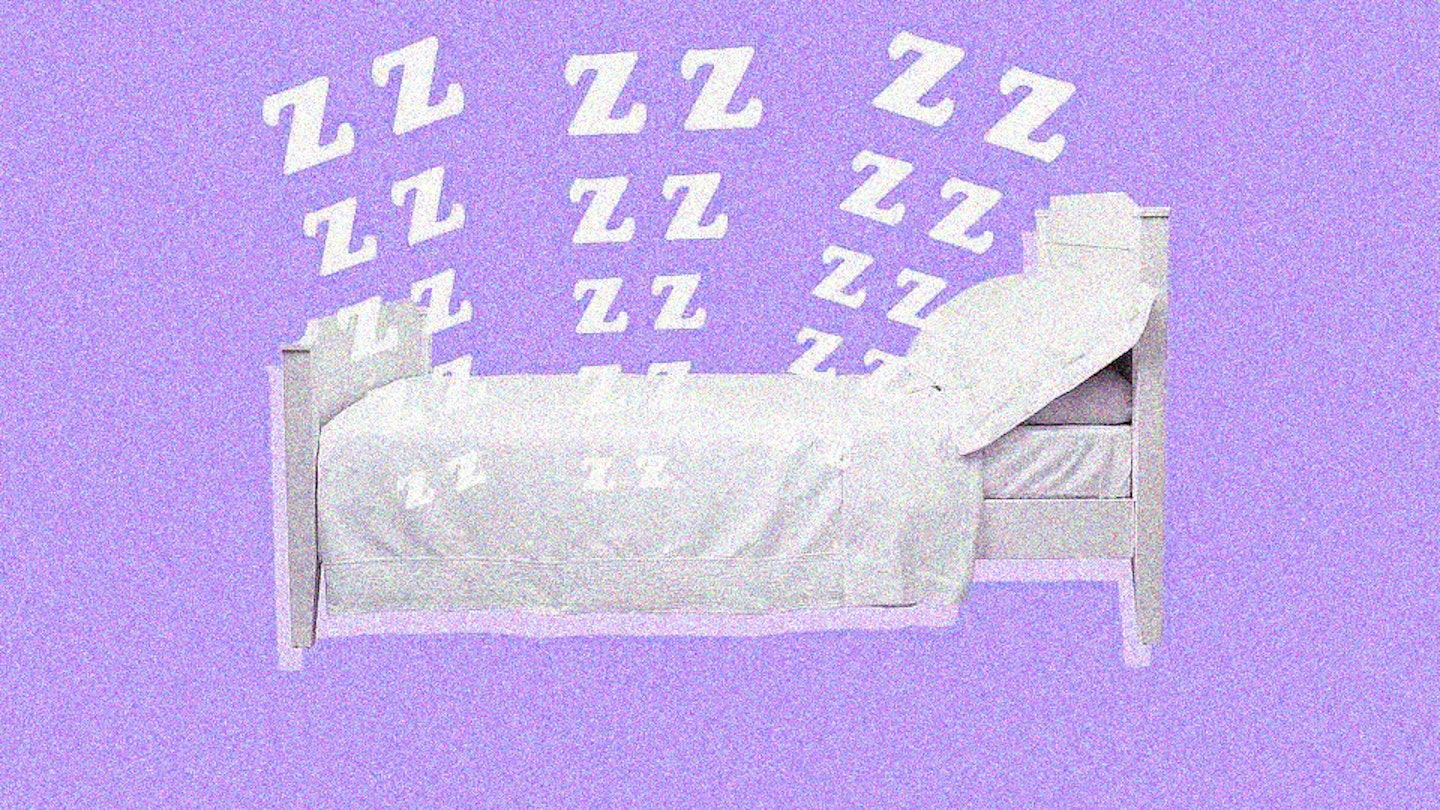Once upon a time, lying awake at night with little more to do than keep a mental tally of the number of hours, minutes, seconds left before morning, was standard. It was the routine that dictated many sleepless nights. Fellow insomniacs and the eternally sleep deprived will be all too familiar with the unwavering habit of the late night mental maths that would ensue, all for the sake of working out whether it'd even be worth trying to get to sleep if it wasn't going to last anyway.
Then smartphones came along with their ability to track everything. Counting steps and plotting menstrual cycleswas helpful to an extent, but having the technology to monitor your sleep - the quality, the length, the interruptions - that was a complete game changer for a generation of sleep obsessive millennials. As with most other aspects of our smart phones though, it quickly becomes addictive. You're suddenly in competition with yourself, each morning obsessively checking and comparing the stats about how often you tossed, turned and got up to pee. And then that habit itself become a bigger problem than your less than eight hour sleep.
In our questto get the perfect night's sleep (because we're all too often told that we're not getting enough, getting too much, or doing wrong) we're taking huge hits to our mental health. So much so that they've discovered a brand new sleep disorder related to our repetitive sleep monitoring. Enter Orthosmnia, a new term coined to describe a specific sleep disorder, which has arisen out of research into how we've taken to relying on tech to monitor our sleep patterns.
WATCH: The Debrief Investigates: The Contraceptive Pill And Mental Health
Here, 'ortho' means correct and 'somnia' means sleep. The word was developed in a study recently published in the Journal of Clinical Sleep Medicine found there to be a growing number of people seeking treatment for 'self-diagnosed sleep disturbances' based on what they've seen in their sleep tracker data.
'The use of wearable sleep tracking devices is rapidly expanding and provides an opportunity to engage individuals in monitoring of their sleep patterns' the report read. It also outlined how relying solely on the information given to us by wearable tech and smartphones, often comes from our counterintuitive search for the perfect sleep - a construct that definitely doesn't exist but we still feel compelled, with access to data that can tell us where we're going 'wrong', to subconsciously work towards anyway. The only thing, though, is that in striving for tops scores on sleep data charts, we're forming a dangerous reliance on a technology that doesn't know our bodies as well as we do.
The report explained: 'The patients' inferred correlation between sleep tracker data and daytime fatigue may become a perfectionistic quest for the ideal sleep in order to optimize daytime function. To the patients, sleep tracker data often feels more consistent with their experience of sleep than validated techniques'.
The appeal is clear. If you've got something in front of you with the ability to take away the emotional admin of assessing how you feel, trying different methods of sleep improvement and physically visiting a medical professional so to be accurately diagnosed with a sleep disorder; then you'll probably take the easy, digital route as encouraged by that shiny little technological sidekick in your pocket. But when push comes to shove, it's yet another example of the very familiar story of relying on tech too much.
It's all built to keep us coming back for more. Every morning a new chart, a new report, a fresh, accurate-seeming interpretation of how well (or poorly) you've slept sits waiting for your desperate perusal. But this dependency is what's becoming just as (if not more) detrimental than our initial tricky sleep habit. The existence of orthosomnia only goes to support that the anxiety of fixing an issue like sleep, that may not have been as problematic as you thought pre-sleep-tracker, is only amplified by the technology built to monitor it. Exhausted? I'm not surprised.
MORE: These Adaptogen Ingredients That’ll Make Your Skin Glow And Decrease Stress And Fatigue
Debrief Adaptogens 10 Ingredients You Need To Look Out For
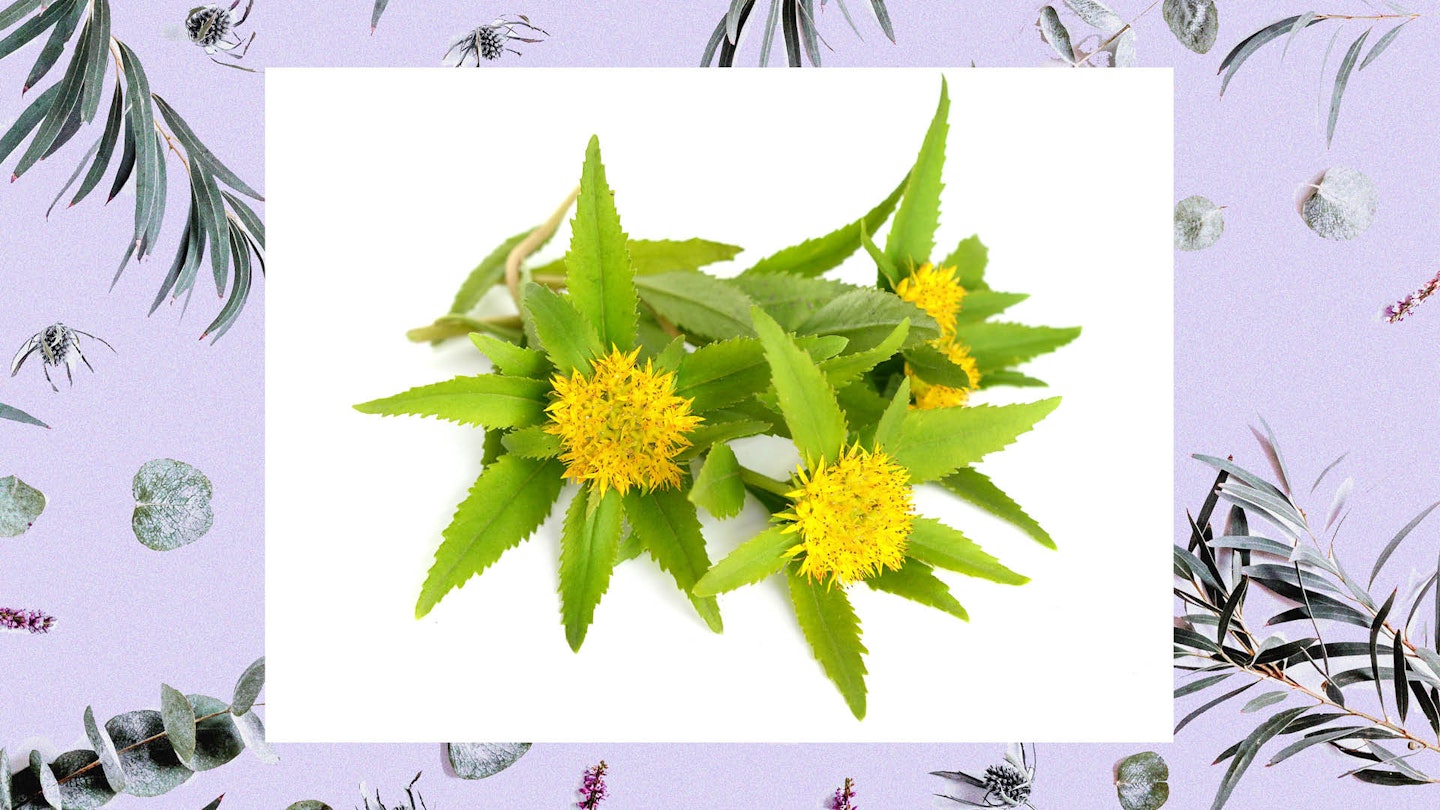 1 of 10
1 of 10Rhodiola Rosea
Clinical research has found nature's 'chill pill' Rhodiola Rosea has anti-inflammatory and anti-depression benefits. Studies)show that the Rhodiola Rosea SHR-5 improves attention, cognitive function and mental performance in chronic fatigue syndrome, hence why this has become so popular with cramming students.
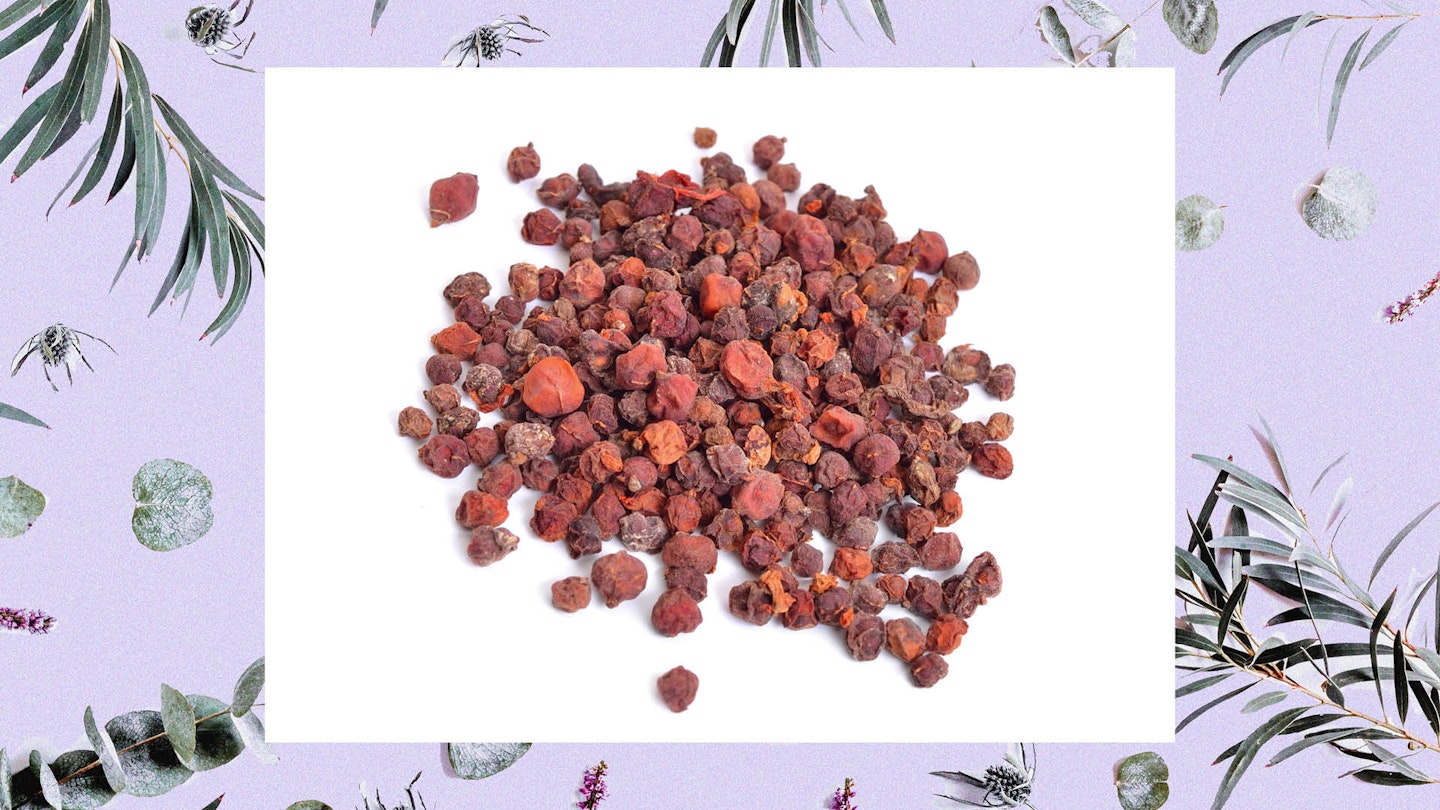 2 of 10
2 of 10Schisandra Chinensis
Feeling spotty? Reach for this Siberian plant. With cherry-like fruits, it's rich in vitamin E and C, natural antioxidants, minerals and essential oils, which are good for skin and hair. It's commonly found in masks, creams and toners because it's known to relieve the skin of irritations and inflammations. When used in shampoos and hair treatments it's to stimulate growth, relieves irritation and itchiness, nourishes and regenerate the scalp, improve hair structure and appearance. It's an all-round good egg.
 3 of 10
3 of 10Ashwagandha
Say 'Om' as Ashwagandha is commonly used in Ayurvedic healing as a powerful calming agent to naturally lower cortisol, reduce fatigue, balance thyroid hormones and regulate immune function.
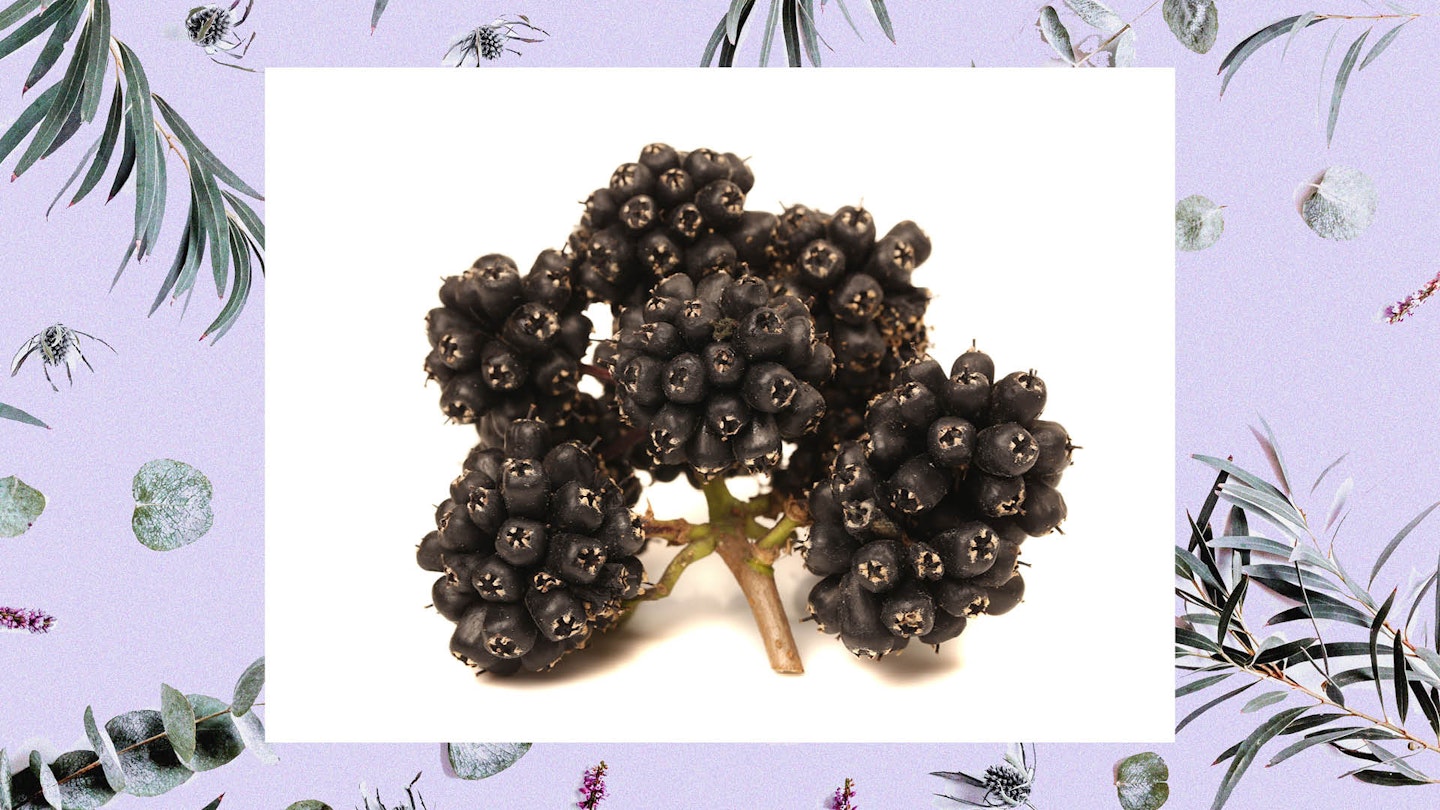 4 of 10
4 of 10Siberian Ginseng
As this Siberian bush can withstand the most extreme winters (thanks to its mix of essential oils, carbohydrates and fatty acids), it's been known to improves skin condition by restoring epidermis cells, protecting the skin from dehydration and stimulating blood circulation. Use this when you feel like your skin is sensitive and dull or if you're worried about premature ageing.
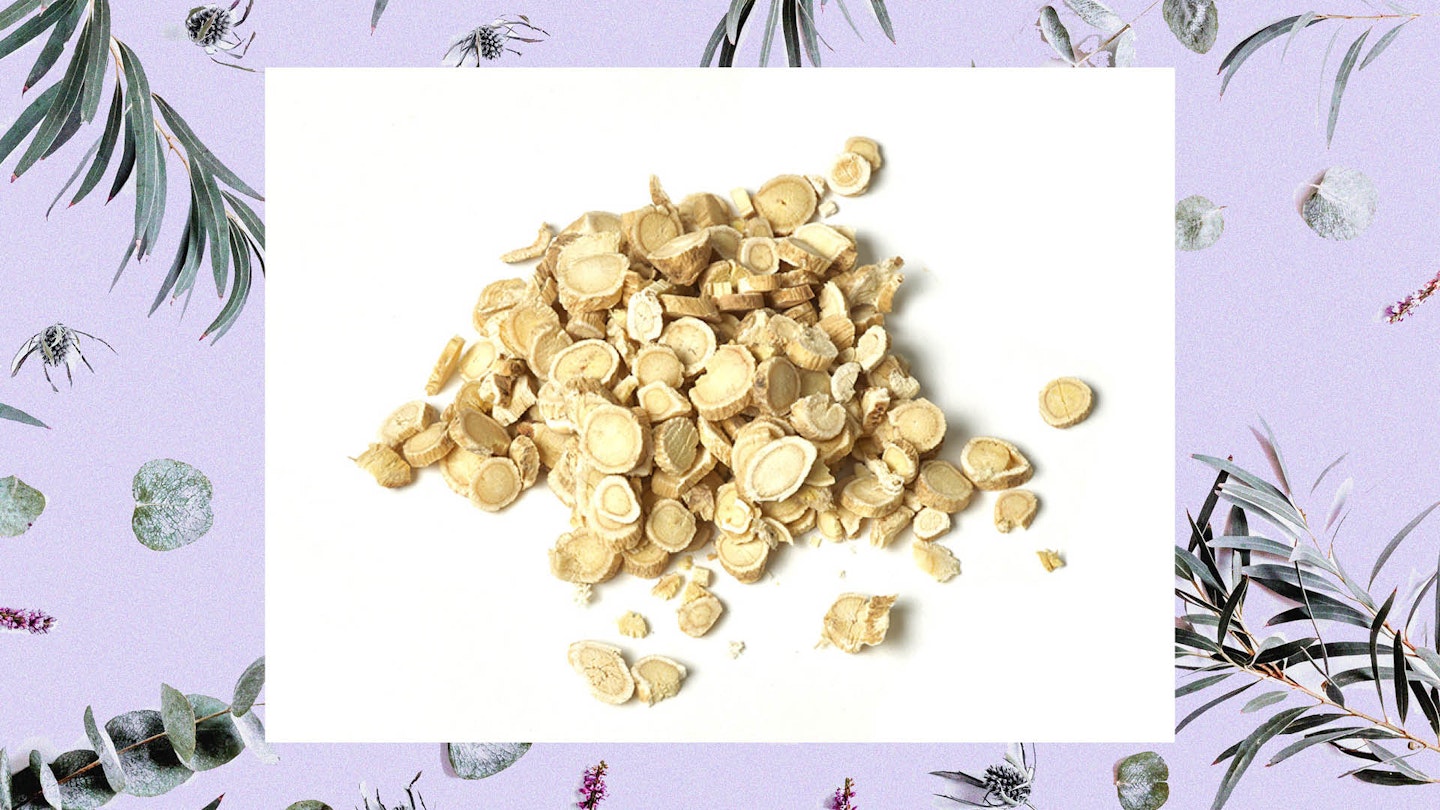 5 of 10
5 of 10Astragalus
Next time you're feeling sneezy and flu-y reach for astragalus as this adaptogen helps fight the common cold. For centuries, it has been employed in Chinese medicine as it is rich in antioxidants, which protect the cells against oxidative damage. It also contains anti-inflammatory and antibacterial properties and can strengthen immune function and protect the liver. It's a winner.
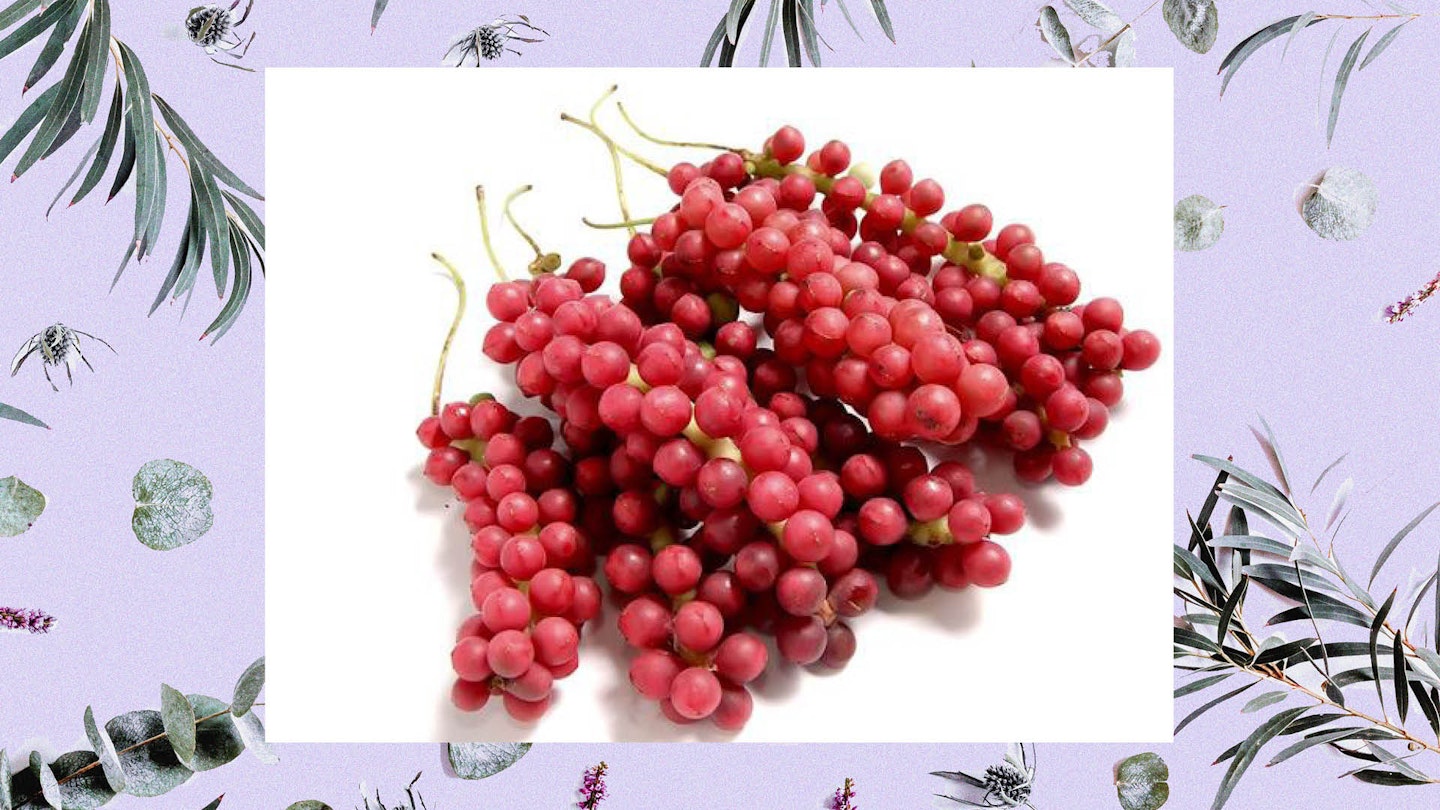 6 of 10
6 of 10Schizandra Berry
Without a doubt, this was the USSR's favourite adaptogen. Why? It increases endurance and mental performance in patients with mild fatigue and weakness. The Soviets also found that it enhances physical performance and promotes endurance. Take this before your next gym sesh.
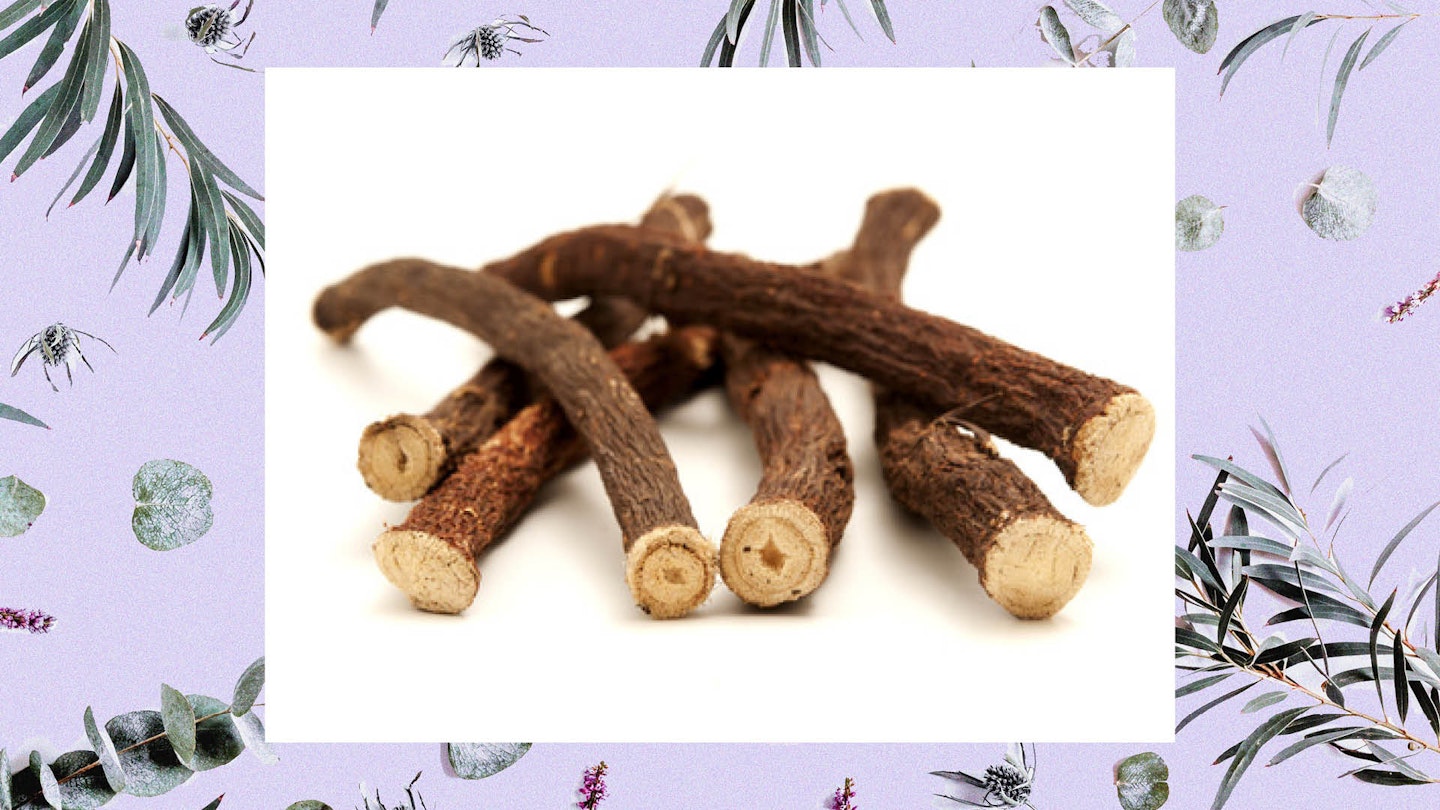 7 of 10
7 of 10Liquorice Root
The Egyptians were big fans of liquorice root as it stimulates and balances the adrenal glands, increase energy and boost endurance. Plus, it's anti-inflammatory properties soothe gut issues and restore balance. However, it's very important to note that moderation is key here, as it contains a compound (glycyrrhizin) that causes high blood pressure.
 8 of 10
8 of 10Eleuthero
AKA Siberian ginseng, Eleuthero has been used for thousands of years in Chinese medicine to provide energy and vitality. A study) has linked it to improved athletic performance, which means it's a wise pick if you're on a health kick.
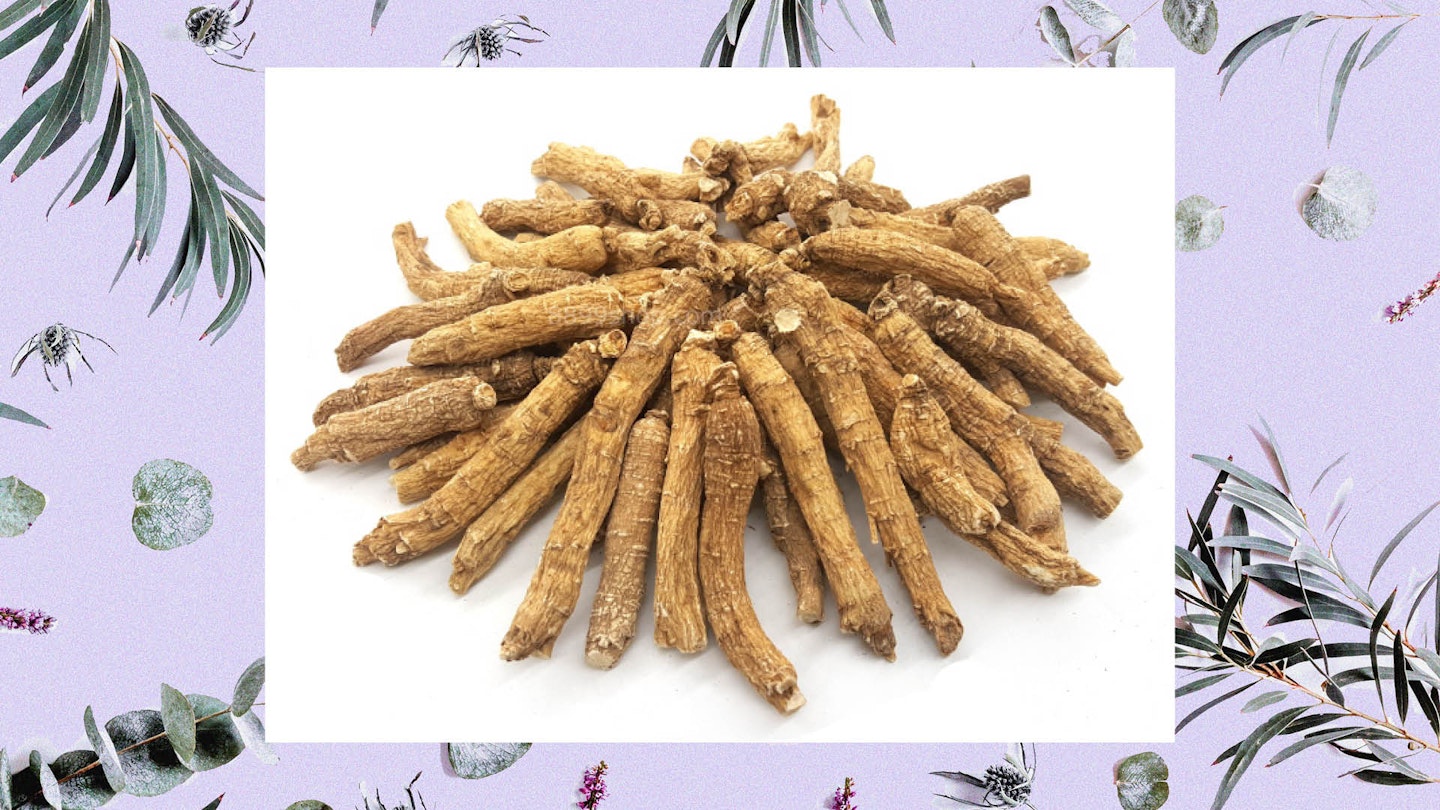 9 of 10
9 of 10American Ginseng
If you're feeling zonked, it's worth noting American ginseng is [said ](http://to boost mental performance, improve short-term memory and reaction time before tests.)to boost mental performance, improve short-term memory and reaction time before tests.
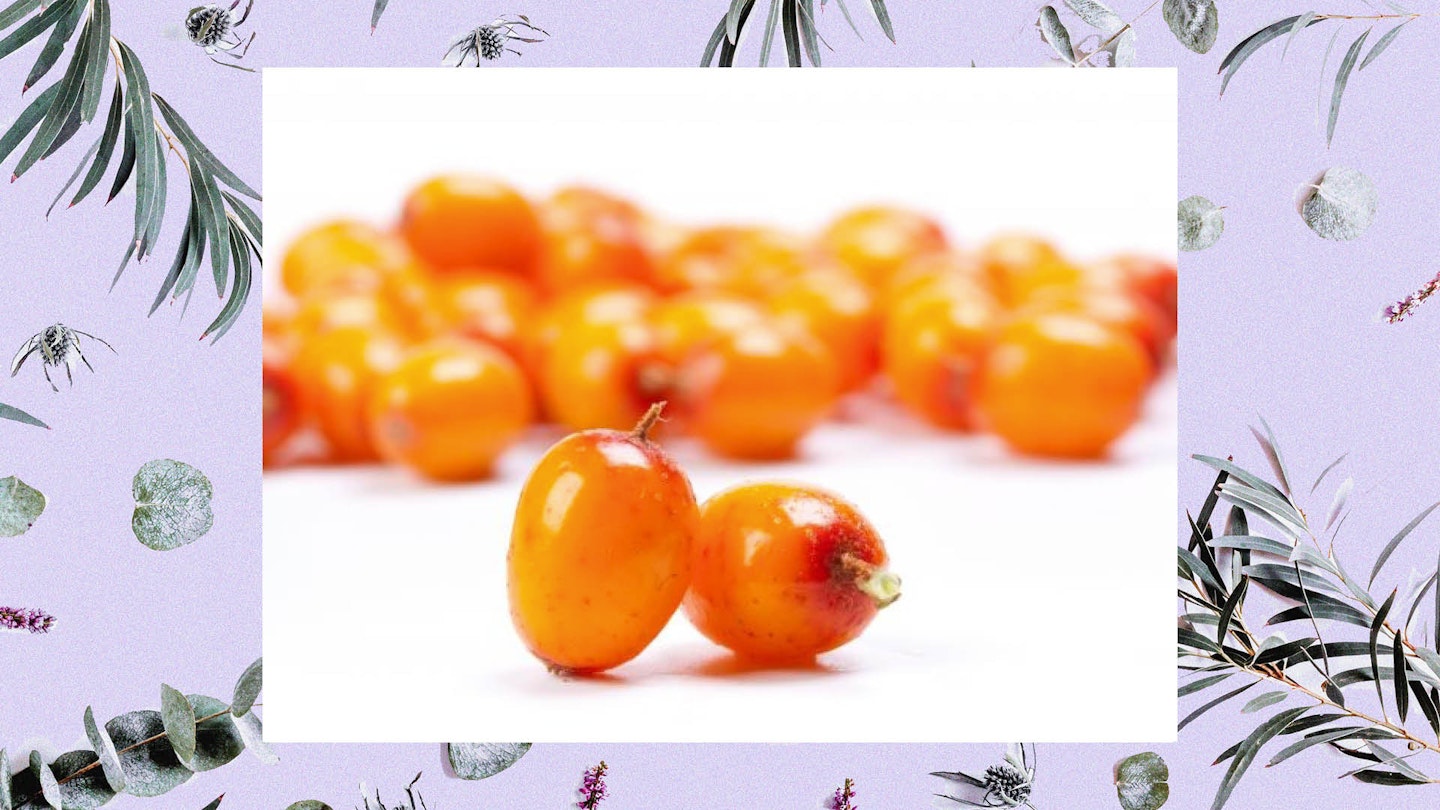 10 of 10
10 of 10Altai Seabuckthorn
When your hair is looking lacklustre it's time to break out this Ancient Greek remedy. Derived from sea buckthorn it improves hair condition, prevents it from falling out and guards against dandruff, dryness and brittleness.
**Follow Jazmin on Instagram **@JazKopotsha
This article originally appeared on The Debrief.
